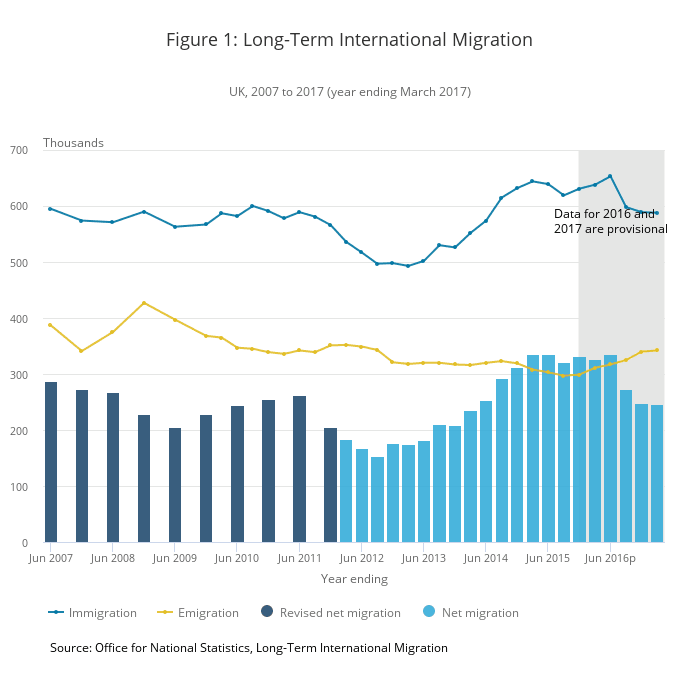Net annual immigration into the UK is at nearly a quarter of a million, but has fallen slightly, thanks to a massive drop in European arrivals since the Brexit vote.
The number of European Union (EU) migrants fell by 51,000 in the 12 months to March 2017, helping push the number of arrivals to its lowest level in three years, new Office of National Statistics (ONS) numbers show.
Net migration for the year was at 246,000; an overall decrease of 81,000 compared with the previous year. The change was largely driven by emigration – those leaving the UK – which hit 342,000, up 31,000 from the previous year.
There were around 30,000 fewer net non-EU migrants, but more than half of the change – 51,000 – was due to Europeans.
Around 33,000 more EU citizens left and 19,000 fewer arrived. A statistically significant 17,000 of those leaving returned to so-called EU8 nations – those that joined in 2004, including Poland, Hungary, and Lithuania.
The figures represent a significant reduction from the peak in net migration of more than 330,000 a year during 2015 and the first half of 2016.
The numbers show fewer people came to the UK looking for work, and 87,000 of total 275,000 who came to the UK did not have a firm job lined up.
The fall in Sterling since the Brexit vote will have dramatically affected the relative value of wages for those from poorer EU nations, possibly reducing the incentive to come to the UK and work.
Nicola White, Head of International Migration Statistics at the ONS, said: “International migration for work remains the most common reason for migration with people becoming increasingly more likely to move to the UK or overseas only with a definite job than to move looking for work.
“These results are similar to 2016 estimates (published in May 2017) and indicate that the EU referendum result may be influencing people’s decision to migrate into and out of the UK, particularly EU and EU8 citizens. It is too early to tell if this is an indication of a long-term trend.”
Members of EU are broken down into groups referred to as EU2, EU8 & EU15. This image outlines the countries in each group: pic.twitter.com/HtW26Kn1t6
— ONS (@ONS) August 24, 2017


COMMENTS
Please let us know if you're having issues with commenting.